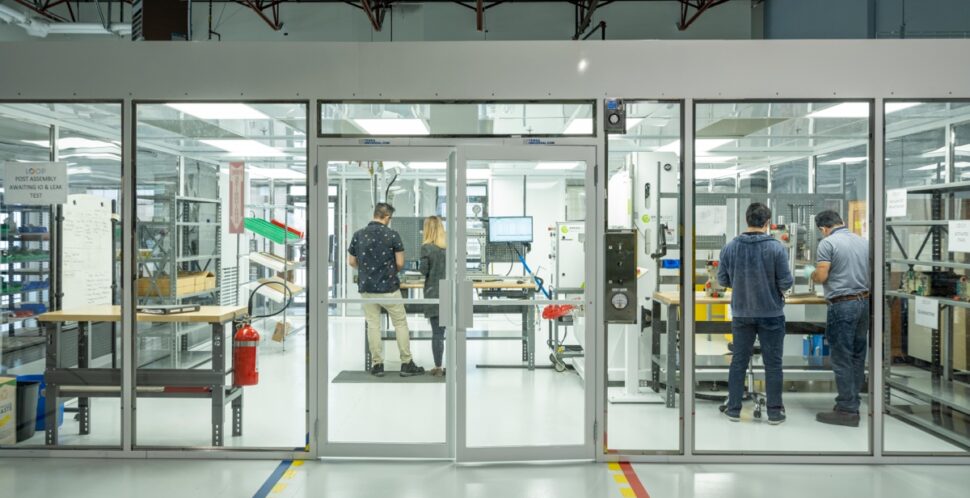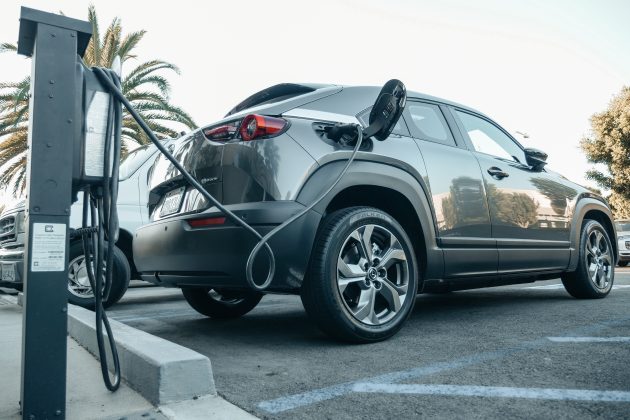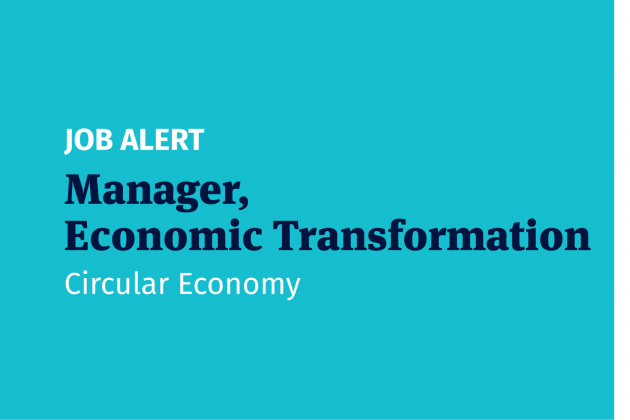Why does clean transportation matter?
Transportation is a vital component of modern society, facilitating economic growth and connecting people and goods. However, it is also a major contributor to greenhouse gas emissions, necessitating a shift towards sustainable practices. British Columbia (BC) recognizes the urgency of reducing the environmental impact of transportation and has implemented various policies and programs to support businesses in adopting zero-emissions vehicles (ZEVs).
Economic Significance
Efficient transportation networks contribute to economic development by enabling the movement of goods and services, connecting producers with consumers, and expanding markets. These networks enhance productivity and reduce costs, fostering economic prosperity.
Environmental Impact
BC’s transportation sector accounts for a significant portion of the province’s greenhouse gas emissions (37%). Fossil fuel-powered vehicles are the primary culprits, emitting substantial amounts of carbon dioxide and contributing to climate change. To mitigate this impact, businesses are being encouraged to transition to ZEVs, which produce zero tailpipe emissions.
Support for Businesses
British Columbia’s government has introduced several policies and programs to assist businesses in reducing emissions and adopting ZEVs. The Zero-Emission Vehicles Act sets ambitious targets for ZEV sales, providing a framework and incentives for businesses to incorporate them into their fleets. The “Go Electric Program” offers financial incentives, rebates, and support for purchasing electric vehicles and installing charging infrastructure. These initiatives aim to make ZEVs more accessible and affordable.
Introducing Foresight’s new cluster: Transportation
One of the newest efforts to help businesses decarbonize transportation is Foresight Canada’s Net Zero Innovation Network and its fourth cluster, focused on transportation.
Foresight’s newly announced cluster aims to mobilize low-carbon transportation solutions for a cleaner, greener, and more connected British Columbia at Motivate Vancouver. This cluster is part of the larger British Columbia Net Zero Innovation Network (BCNZIN) initiative that enables, accelerates, and builds capacity for stakeholders and rights holders working to make meaningful progress toward net-zero climate goals.
The Transportation cluster will focus on enabling the adoption of electric and low-carbon vehicle technologies as well as smart mobility and intelligent transportation systems across commercial fleets and supply chains to ensure this critically important economic sector remains competitive and resilient in a low-carbon future.
Learn more about the BC Net Zero Innovation Network’s Transportation cluster.
BC’s top clean transportation companies
The businesses listed below are innovative clean transportation companies based in British Columbia (BC), dedicated to advancing sustainable practices and working towards the goal of achieving zero emissions. These companies are actively involved in various aspects of the clean transportation industry, including but not limited to:
- use of EVs, manufacturing of electric vehicle (EV) components
- development of EV sharing and leasing services
- promotion of alternative fuels
Their efforts contribute significantly to reducing greenhouse gas emissions, improving air quality and fostering a sustainable future.

Electric Vehicles and Batteries
1. Canadian Electric Vehicles, Vancouver Island
canEV is a global company with over 20 years of experience in designing, manufacturing, and supplying electric vehicles and components. Their product portfolio includes a wide range of electric vehicles, from aircraft refuelling trucks to the Might-E Tug, capable of towing up to 10,000 pounds. The flagship product, the Might-E Truck, is a custom-built heavy-duty electric utility vehicle used in various sectors such as universities, government sites, industries, parks, municipalities, and private companies worldwide.
2. Electra Meccanica, Vancouver
Electra Meccanica is a Vancouver-based automotive company specializing in electric vehicles (EVs). Their flagship vehicle, the Solo, is a compact and efficient single-seat electric car designed for urban commuting. They also offer the Tofino, a stylish two-seat electric roadster. Electra Meccanica is committed to promoting sustainability and reducing carbon emissions by encouraging the adoption of electric mobility. With a strong presence in the North American market and expanding global reach, they are driving the transition towards a greener future in urban transportation.
3. Delta-Q Technologies, Burnaby
Delta-Q Technologies, headquartered in Burnaby, Canada, is a leading provider of high-performance battery charging solutions for electric vehicles and industrial equipment. Their chargers are known for their efficiency, reliability, and advanced features, ensuring optimal performance and extended battery life. With a focus on innovation and collaboration with OEMs, Delta-Q Technologies offers customized charging solutions that integrate seamlessly with their customers’ products. They have established a strong global presence and are trusted partners in the electric vehicle and industrial equipment sectors, driving the electrification of diverse industries.
4. E-One Moli Energy, Maple Ridge
Established in 1998, E-One Moli Energy Corp. is a renowned manufacturer of high-performance rechargeable lithium-ion cells. With over 40 years of industry experience under the brand name MOLICEL®, the company has solidified its position as a world-class leader in the battery industry. Specializing in ultra-high power cylindrical cells, E-One Moli has gained recognition from global OEMs in various sectors, including motorsports, high-end automotive, aerospace, medical, home appliances, and power tools.
5. GreenPower Motor Company, Vancouver
GreenPower Motor Company, founded in 2010, aims to accelerate the adoption of electric vehicles (EVs) by producing affordable, durable, and easily deployable battery-electric buses and trucks. The company offers a range of commercial vehicles suitable for various purposes such as delivery, public transit, schools, vanpools, micro-transit, and shuttles. GreenPower’s battery electric buses are capable of performing nearly any route, providing a quieter and more efficient ride compared to their fossil fuel counterparts. The company’s headquarters is located in Vancouver, Canada, with a sales and administration office in Rancho Cucamonga, CA. Additionally, the assembly of their vehicles takes place in Porterville, CA, specifically in the San Joaquin Valley region.
6. Greenwit Technologies, Vancouver
Dealer support strategy of Greenwit Technologies for electric motorcycles includes providing a wide range of reputable brand options, comprehensive training and repair manuals, efficient warranty support, online sales registration, digital marketing materials, dedicated electric motorcycle accessories, flexible financing, customer feedback integration for product development, and a strong emphasis on after-sales service. They actively engage with current internal combustion engine (ICE) riders to encourage their transition to electric, prioritize performance, quality, and long-range capabilities, explore practicality options for urban use, and ensure sufficient spare parts inventory. Their aim is to empower dealers in promoting and servicing electric motorcycles while continuously enhancing our offerings based on customer input.
7. Loop Energy, Vancouver
Loop Energy is a pioneering company based in Vancouver specializing in developing, manufacturing, and supplying hydrogen fuel cell systems to vehicle OEMs and power generation system manufacturers. With their proprietary patented designs and technological advancements, Loop Energy is revolutionizing the industry by offering unparalleled fuel efficiency, power density, and fuel durability. Headquartered in Vancouver, Loop is strategically located in the heart of the fuel cell design hub. With additional manufacturing and business development locations in Asia and Europe, the company is poised for global growth, aiming to serve and supply customers worldwide.
Infrastructure and materials
8. Powertech Labs, Surrey
Powertech Labs, BC Hydro research laboratory, is a renowned subsidiary consisting of scientists, engineers, and specialists who support various industries. Powertech focuses on innovations in electricity generation and usage. Their ground-breaking research and solutions have not only transformed operations but have also been adopted globally. These innovations provide value by reducing costs, increasing productivity, extending facility service life, improving performance, optimizing maintenance, and promoting energy efficiency. The tools developed by Powertech have improved safety, grid reliability, and energy delivery costs while minimizing environmental impacts and enhancing convenience for customers.
9. IRDI System, Richmond
IRDI System Inc., established in August 2010, specializes in manufacturing infrared communication equipment in a hydrogen-enriched environment. While the company has maintained its focus in this field, it has also diversified its product offerings to cater to the fuel cell industry. The equipment manufactured by IRDI System Inc. complies with the gas filling requirements outlined in the Society of Automobile Engineering (SAE) J2799/J2601 standard, specifically designed to serve the fuel cell industry.
10. Corvus Energy, Richmond
World leader in zero-emission solutions for the ocean space Corvus Energy is the world’s leading supplier of safe, innovative, and reliable zero-emission solutions for all segments in the maritime industry.
11. Ballard Power Systems, Vancouver
Ballard’s corporate headquarters are in Vancouver, Canada, driven by the inspiration of the natural surroundings and the community’s dedication to environmental protection. The Canadian facilities primarily concentrate on fuel cell expertise, including manufacturing membrane electrode assemblies, integrating and testing fuel cell stacks, assembling and testing motive modules, and providing engineering services for other products. Ballard consistently invests in manufacturing capabilities and processes to support high-volume production and automated processing, aiming to facilitate future growth.
12. Corinex Communications, Vancouver
Corinex plays a crucial role in enabling decarbonization through their self-regulating systems. As the exclusive provider of Broadband over Power Lines (BPL) solutions in mass rollout, they specialize in developing cutting-edge solutions for energy companies, including electric utilities, EV manufacturers, and EV charging providers. Their flagship offering, GridValue and EnergyGrid, is a comprehensive hardware and software solution that revolutionizes the industry by enabling high-speed and secure connectivity, monitoring, and IoT management over existing powerline infrastructure. This innovative technology not only facilitates efficient and reliable communication but also contributes significantly to the advancement of sustainable energy practices, supporting the global transition towards a decarbonized future.
Alternate Fuels and Fuel Cells
13. Westport Innovations, Vancouver
Westport Fuel Systems is a prominent supplier of advanced fuel delivery components and systems for various affordable alternative low-carbon fuels, including natural gas, renewable natural gas, propane, and hydrogen. With a strong focus on innovation, Westport is at the forefront of driving cleaner performance by providing practical applications that comply with lower emissions regulations. Their expertise and solutions enable the adoption of sustainable fuel options for a greener future.
14. Hydra Energy, Vancouver
Introducing Hydra, a pioneering company at the forefront of green trucking solutions. With their proven hydrogen-diesel co-combustion retrofit approach, Hydra is leading the way in decarbonizing the trucking industry. They have achieved remarkable milestones, including delivering the first hydrogen-converted heavy-duty truck and establishing critical fleet and hydrogen supply partnerships. Hydra is currently constructing the world’s largest hydrogen refueling station and strategically expanding through licensing partnerships. Their zero-cost, end-to-end green trucking solution for commodity haulers positions them as leaders in the market.
15. Hydrogen Technology and Energy Corporation (HTEC), North Vancouver
HTEC is a leading company in the clean hydrogen sector, specializing in developing, integrating, and operating hydrogen energy solutions. They own and operate Canada’s first hydrogen refuelling station network and are building clean hydrogen production facilities. HTEC facilitates the transition to zero-emissions transportation in Canada and the US by providing engineered solutions and support to customers. They are driving the adoption of clean hydrogen for a low-carbon future.
16. Hydrogen in Motion (H2M), Vancouver
Hydrogen in Motion (H2M) is a pioneering company that offers a highly efficient and environmentally friendly hydrogen energy solution. Their innovative technology provides a continuous source of emission-free energy with compact storage, low costs, and versatility. H2M’s hydrogen fuel technology excels in terms of affordability, safety, convenience, and portability. By revolutionizing the perception of clean energy, H2M is transforming the way the world views sustainable energy solutions. Their product portfolio encompasses hydrogen storage, hydrogen delivery (H2U), hydrogen generation, and capital financing services.

Photo: Pascal Huot, Adobe Stock
Sharing and Leasing Services
17. Grin Technologies, Vancouver
Grin Technologies Ltd., a Vancouver-based Canadian product design and R&D company, specializes in advancing after-market electric bicycle conversion kits. With a commitment to universal designs and avoiding proprietary standards, Grin Technologies takes pride in creating clever electric bike parts and accessories. Originally formed as “The Renaissance Bicycle Company” and “Petro Can’t Ebike Accessories” in November 2005, the companies merged in 2010 and rebranded as Grin to encompass their extensive range of EV activities.
18. Mobi by Shaw Go, Vancouver
Mobi by Shaw Go, operated by Vancouver Bike Share Inc, is a popular public bike sharing service in Vancouver, British Columbia. With 2,000 classic bikes and 500 ebikes available at 250 stations, Mobi by Shaw Go offers a convenient and flexible transportation option for commuting, errands, and city exploration. As part of the City’s vision to promote cycling as a daily activity, Mobi by Shaw Go plays a vital role in reducing greenhouse gas emissions, improving public health, and increasing accessibility. Their commitment to equity is evident through initiatives like the Community Pass Program, which provides affordable access to bike share for underrepresented communities.
19. 7Gen, Vancouver
7Gen is a company that focuses on removing the significant obstacles to electrification faced by medium- and heavy-duty commercial fleets. They specialize in providing straightforward and affordable solutions for leasing electric vehicles (EVs) and chargers, enabling fleet managers to achieve zero-emission transportation. Their services encompass electric truck leasing, full-service charger leasing, advisory services, project implementation, and software solutions. By offering these comprehensive services, 7Gen aims to facilitate the transition towards sustainable transportation and contribute to a greener future.
20. Modo, Vancouver
Modo is actively working towards its strategic priority of achieving a zero-emission fleet by 2030. With approximately 35% of their current vehicle fleet consisting of low-emission options, such as electric and hybrid vehicles, Modo is committed to reducing barriers, traffic congestion, and pollution. By electrifying their fleet, Modo not only strengthens their sustainability efforts but also provides more people with access to electric vehicles, contributing to a greener and more accessible transportation future.
Dive deeper into clean transportation
Are you an innovator of products or services that help build smarter, more connected cities?
- TransLink is in search of solutions in the areas of fleet and building energy management and GHG reductions, ridership development, and digital services and infrastructure. Learn more through Project Greenlight
- The BC Net Zero Innovation Network’s Transportation cluster aims to speed up the zero emissions vehicle adoption and future-proof supply chains and cities in the transition to a low-carbon future: visit Foresight’s to learn more.
Interested in learning more about the shift to net zero?
- To learn about how we can support businesses and workers in the transition to net zero, check out VEC’s Zero Emissions Economic Transition Action Plan (ZEETAP)
- Interested in what we else we had to say about clean transportation and sustainable mobility? Check out this issue of the Vancouver Economy Report



